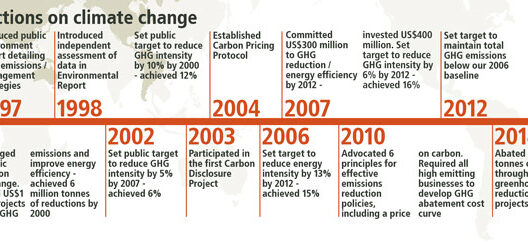Climate change is arguably one of the most pressing issues of our time, and it requires collective action from individuals, communities, and governments around the globe. The consequences of inaction are dire, resulting in rising global temperatures, increased frequency of extreme weather events, and loss of biodiversity. So, what can we do to combat climate change effectively? This article aims to explore various strategies and approaches to mitigate this global crisis.
Understanding the urgency behind climate change and our role in addressing it is crucial. We have the power to make impactful decisions in our daily lives, influencing not only our carbon footprints but also those of our communities. From personal lifestyle changes to advocating for systemic reforms, here are several avenues through which we can combat climate change.
Individual Lifestyle Changes
One of the most direct ways to combat climate change is through individual lifestyle choices. Making conscious decisions in our daily lives can significantly impact greenhouse gas emissions. Simple actions can accumulate to create substantial effects.
Reduce, Reuse, Recycle
Adopting the three Rs can drastically minimize waste. Reducing consumption not only conserves resources but also decreases emissions generated during production processes. Reusing items prolongs their life cycle, and recycling materials diverts them from landfills, decreasing methane emissions.
Transition to Renewable Energy
Whenever possible, opt for renewable energy sources such as solar, wind, or hydroelectric power. Investing in solar panels for homes or choosing energy suppliers that focus on renewable sources can contribute to a greener energy grid. This transition is essential to decrease reliance on fossil fuels, which are the primary drivers of climate change.
Make Sustainable Transportation Choices
The transportation sector is a significant contributor to global emissions. By prioritizing walking, cycling, carpooling, or using public transportation, individuals can help mitigate this issue. Additionally, if car ownership is necessary, consider electric or hybrid vehicles that provide a more sustainable alternative to traditional petrol or diesel engines.
Community Engagement and Advocacy
Combating climate change is not just an individual responsibility; it also demands community engagement. Collective efforts can lead to broader, systemic changes that amplify the effects of individual actions.
Join Local Environmental Groups
Participating in local environmental organizations helps build a supportive network committed to fighting climate change. Whether it’s through organizing clean-up drives, community gardens, or educational campaigns, collaboration enhances the effectiveness of grassroots efforts.
Advocate for Policy Changes
Policy reform is pivotal in addressing climate change on a larger scale. Educating oneself and the community about local, state, and federal policies allows for informed advocacy. Engaging with local representatives to promote sustainable policies—such as carbon pricing, renewable energy incentives, and stricter emission controls—can enact positive change on a governmental level.
Support Climate-Conscious Businesses
Financial choices hold considerable power. Support businesses that prioritize sustainability through ethical sourcing and eco-friendly practices. By purchasing products and services from environmentally-conscious companies, consumers can direct the market toward greener options, thereby reducing overall carbon footprints. Choose local produce, as transporting food over long distances generates more emissions.
Education and Awareness
Knowledge fuels action. Understanding climate change’s causes, impacts, and potential solutions empowers individuals and communities to make informed decisions. Educational initiatives can include workshops, webinars, and community discussions. These platforms can help spread awareness and build consensus around climate action.
Encouraging Youth Involvement
The youth represent the future, and involving them in climate advocacy can catalyze significant change. Programs that educate young people about environmental stewardship and sustainability prepare a new generation of leaders. Engaging schools and universities in sustainability initiatives can foster a culture of environmental responsibility from an early age.
Innovative Technological Solutions
Science and technology offer valuable tools in the fight against climate change. Innovations can transform how we harness energy, practice agriculture, and manage waste.
Invest in Carbon Capture Technology
Carbon capture and storage (CCS) technology is an emerging field aimed at capturing CO2 emissions from sources like power plants and storing it underground to prevent it from entering the atmosphere. Investing in such technology can be a crucial component of a multifaceted approach to climate change mitigation.
Promote Sustainable Agriculture Practices
Our agricultural practices significantly impact climate change. Supporting organic farming, permaculture, and regenerative agricultural methods can enhance soil health, sequester carbon, and reduce reliance on synthetic fertilizers. Additionally, a shift toward plant-based diets can lower emissions associated with animal agriculture.
Build Resilience Against Climate Effects
While fighting climate change, it is equally important to prepare for its inevitable effects. Building resilient communities that can withstand extreme weather events is essential. Local governments should focus on infrastructure improvements that consider climate forecasts, ensuring communities can adapt to changing conditions.
Global Cooperation and Commitment
Finally, tackling climate change appeals to a global audience; no single nation can combat this crisis alone. International cooperation through treaties and agreements, such as the Paris Agreement, is crucial for a unified effort. Countries must commit to ambitious climate goals and support each other through technology transfer and financing initiatives aimed at vulnerability reduction in developing nations.
Fostering accountability on an international scale reinforces the importance of collective responsibility in our fight against climate change.
In conclusion, combating climate change involves a multitude of strategies ranging from individual lifestyle adjustments to systemic advocacy and international cooperation. Every small action contributes to the larger fight against this existential threat. By fostering awareness, engaging in community initiatives, promoting sustainable practices, and supporting policy reforms, we can take significant strides in our challenge against climate change.







